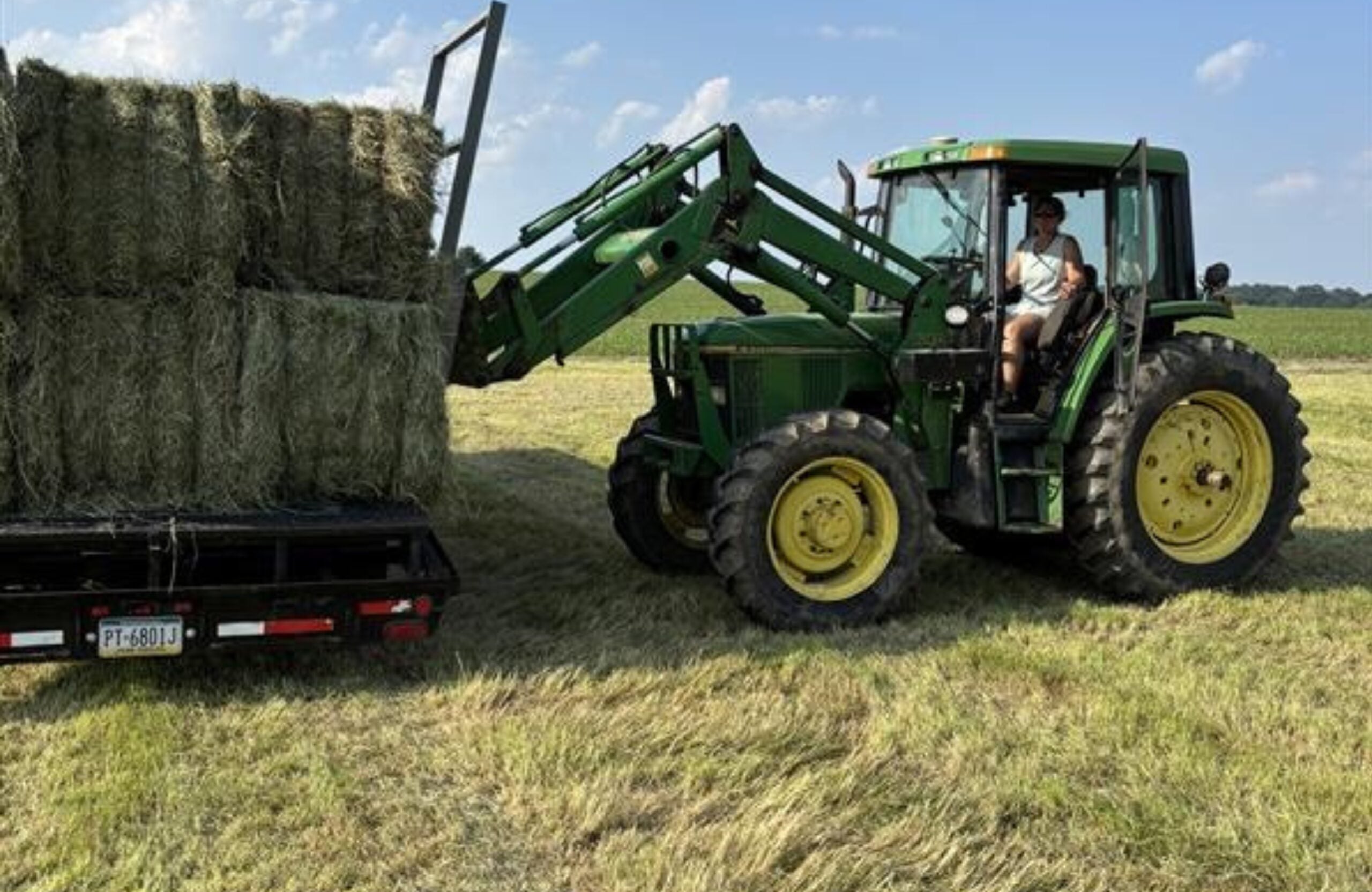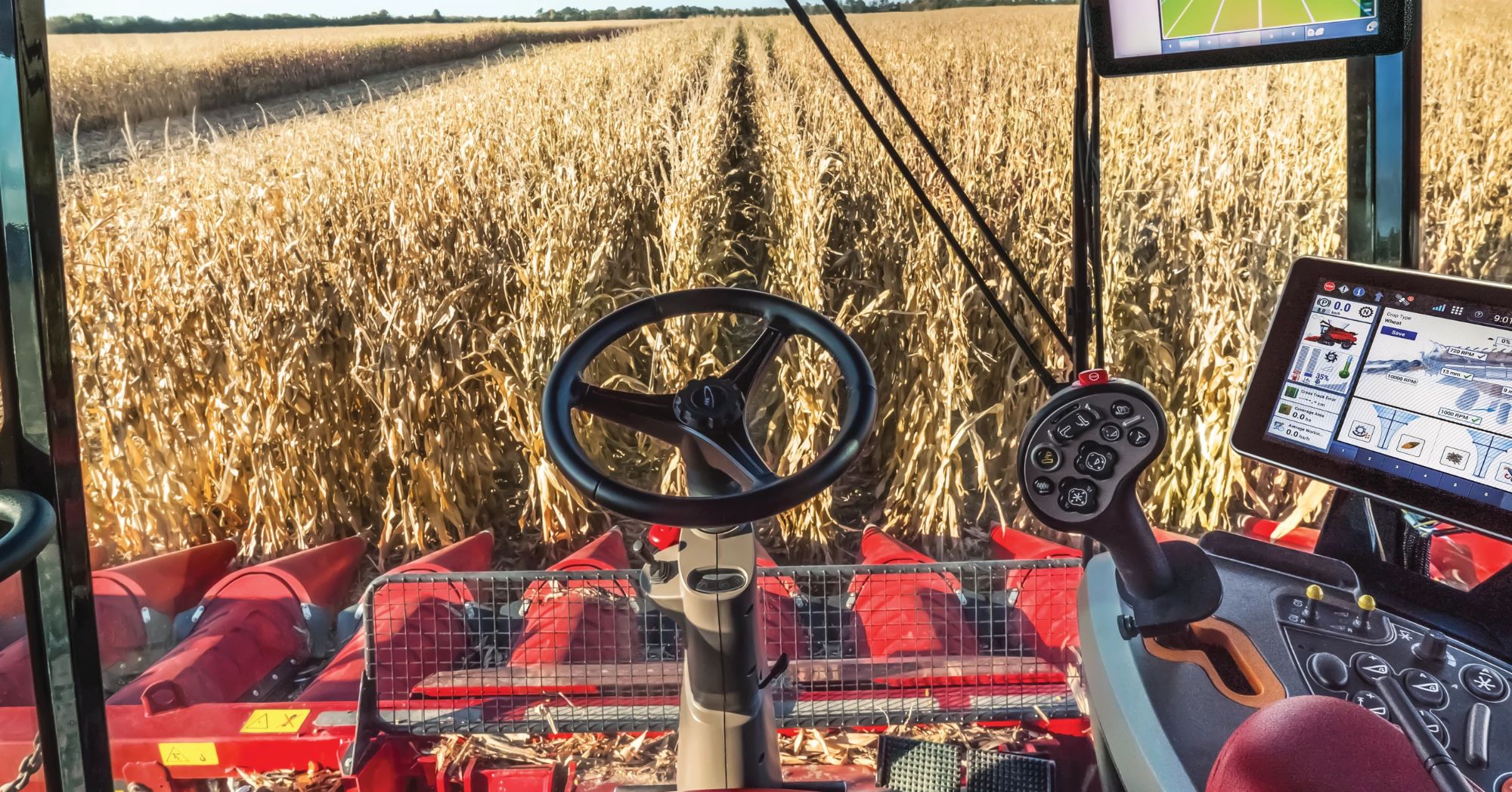Agriculture has long been seen as a male-dominated field, but there are women everywhere who are making their mark. Women account for 36 percent of the United States’ farm producers. While they might be small in numbers, women in ag make a big impact. Female farmers are innovative and passionate, which is exactly how you could describe Kristen Grumbine.
Kristen is the second generation on her family farm in Lebanon County, Pennsylvania. Farming between 600 and 700 acres of corn and soybeans on three separate farms is a full-time job … and then some! Alongside her husband, who is a teacher, Kristen takes the lead on harvesting, while her husband does most of the planting. This unique arrangement works well for the Grumbine family and is a great example of how teamwork on the farm can take many forms.
Over the years, the farm has changed. These days, Kristen and her family grow corn and soybeans, but they started out as a dairy farm. Despite growing up on the farm, Kristen didn’t really see herself taking over. Her brother eventually bought the dairy herd and moved to a new farm to be able to expand the operation, which transitioned Kristen’s family to strictly crop farming.
“Some of the decisions got made for us in a way,” Kristen says. “I enjoyed the dairy when we were doing it, but once we were away from it I realized ‘Oh, there’s more to life than taking care of cows 24/7.’ ”
Crop farming offers more flexibility and time to the Grumbine family. Over the years, the Grumbine farm has continued to evolve. For a long time, wheat was part of the crop rotation, but that changed three years ago. It was a hard decision for the family to move away from wheat. Wheat brought in an income at different times of the year, so it took a long time to make the decision.


“Wheat can be very stressful,” she adds. “With just harvesting, getting it at the right time, and battling the weather is tough.”
The farm is continually evolving and looking for new opportunities.
“My husband is on top of the latest things as far as the crops go. He’s very progressive; he’s very willing to try stuff,” Kristen says. Many times the family is asked to try new things to share data back to seed and chemical reps. “He spends a lot of time trying to get everything right that is within our hands.”
Other changes on the farm have come naturally, a lot of times sparked by family interests. Their oldest son raised pasture pork for about a decade before starting his own trucking company. Horses are on the farm as a hobby, and sheep are currently in the runs that were formerly home to the pigs to manage the pasture. But no matter what’s happening, one thing is certain — the Grumbines are adapting regularly.
Kristen’s story is especially important in highlighting the role of women in agriculture. When she started out, there weren’t many women running equipment or working with machinery, but that’s changed dramatically.
“There are more and more women getting involved in all aspects of farming and agriculture. Now there’s a lot of women out there in the seed business, in fertilizer, chemicals, all of the aspects,” Kristen says.
From an early age, Kristen was in the cab of a combine, learning from her father and doing the work alongside the men.
“I always thought it was cool to go out there and do what the men were doing,” she says.
And while she says she hasn’t personally faced much adversity, she recognizes that women in ag still need encouragement and support. She does admit that women might need a little more physical support.
“Some of it is tough for a woman, but as far as being able to run the equipment and the know-how, I don’t see any difference,” she says.
Her advice to women looking to pursue agriculture? “Go for it. If they’re passionate about it and if that’s what they want to do. They may need a little physical help every once in a while but other than that they should be good to go.”


There’s been times when Kristen has gotten some help, partly due to not having the physical strength to equal some of the men on the farm, but also just to have general support. Farming isn’t a solo act, Kristen says. “Even when I was younger, there was always someone around when I had trouble, and they’d always come give me a hand because they always knew that I tried my best to do it myself first.”
Looking ahead, the Grumbines are experimenting with new practices like testing to see how much nitrogen they actually need and minimizing high-cost fertilizer use to see if it has an effect. As for the future, her two sons seem interested in taking over someday, and Kristen sees herself and her husband slowly stepping back as they transition into leadership.
Ultimately, Kristen believes the key to their success has been teamwork.
“My husband and I make a good team,” she says. “It does take teamwork, whether it’s spouses or family working together, everybody has a part to play.”
And after years of farming together, that teamwork has turned their operation into a well-oiled machine.
Michelle Miller, the Farm Babe, is a farmer, public speaker, and writer who has worked for years with row crops, beef cattle, and sheep. She believes education is key in bridging the gap between farmers and consumers.